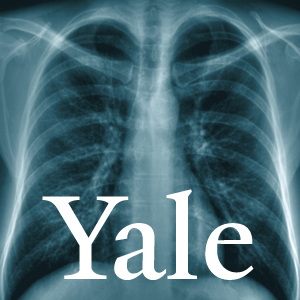Discover Practical Discussion
Practical Discussion

9 Episodes
Reverse
The doctor who supposedly established a link between vaccination and autism has his research de-published on grounds of fraud. New York State decides to pay women for research eggs. President Obama’s NIH expands funding of embryonic stem-cell research – but won’t fund some Bush-funded research on ethics grounds. The Roman Catholic Church reasserts its controversial positions against assisted reproduction and against withdrawal of medically-delivered nutrition and hydration at the end of life. Breast-cancer exam standards change – sort of. A new healthcare reform bill addresses not only insurance but also fast-food calories and patient-centered medical care. The US announces a record-breaking 31.8% c-section rate. Stephen Latham, Deputy Director, Interdisciplinary Center for Bioethics; Senior Lecturer, Political Science; Senior Research Fellow, Ethics, Politics and Economics and Lecturer in Economics, will explain these and a few others of this year’s top stories in biomedical ethics.
Tomas Philipson, Professor in the Harris School and Faculty Member in the Department of Economics and Law School at the University of Chicago, talks to Kelly Brownell, Director of the Rudd Center for Food Policy & Obesity, about the economics of obesity.
Tamas Horvath, Chair of Comparative Medicine at Yale University and Professor of Comparative Medicine, Neurobiology, and Obstetrics & Gynecology, talks with Rudd Center Director Kelly Brownell about the role of metabolic hormones in brain functioning.
Linda Degutis,associate professor of surgery and emergency medicine and director of the Yale Center for Public Health Preparedness at Yale School of Public Health, talks about what Yale is doing to help prepare the state for a disaster and its aftermath.
Haifan Lin, Director of the Stem Cell Program, explains how understanding the fundamental working principles of stem cells is the basis for the research conducted at Yale.
Dr. Sukru Emre, Section Chief of Transplant Surgery and Immunology in the Department of Surgery at Yale School of Medicine and Director of the Yale-New Haven Transplantation Center specializes in adult and pediatric liver transplantation. In this interview he discusses the transplantation program at Yale-New Haven Hospital, as well as issues related to organ transplantation, such as the donor shortage and quality of life for patients after the surgery. He also explains innovative procedures that allow surgeons to use a single donated organ to save multiple patients.
Dr. Robert Udelsman, William H. Carmalt Professor of Surgery, Chief of Surgery at Yale-New Haven Hospital, and chair of surgery at Yale School of Medicine, discusses minimally invasive techniques that allow surgeons to operate through tiny incisions. This new method of surgery reduces pain, scarring, and recovery time. Udelsman has made sweeping changes in his department, which is determined to make the number-one surgical program in the world. His specialty is surgery of the thyroid, parathyroid, adrenal gland, and pancreas.
Is Bariatric Surgery for You? Forty million Americans are overweight and 11.5 million are morbidly obese, which means 100 lbs above normal weight for men and 80 lbs above normal weight for women. Bell says the causes of obesity include genetic, environmental, psychological, social, cultural, and metabolic. Diet and exercise, particularly for morbidly obese persons, is often not effective. Bell calls it “low risk surgery performed on high risk individuals.” Among the medical problems that often clear up after bariatric surgery are diabetes, hypertension, sleep apnea and gastroesophageal reflex disease. Complications occur in much less than one percent of all bariatric surgery procedures.
Robert J. Alpern, M.D., Dean of Yale School of Medicine and Ensign Professor of Medicine, explains how the school is uniquely positioned to lead the revolution in biomedical science in research, clinical care, and education.





